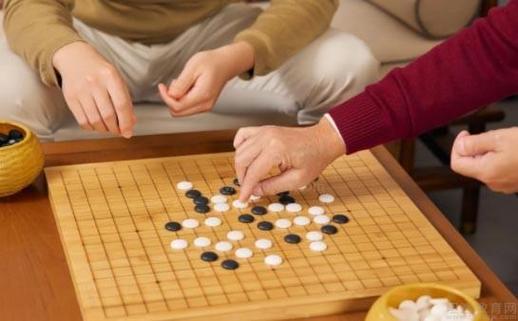介绍围棋的英语演讲稿
Title: The Classic Go Stories: Introducing Traditional Go Anecdotes in English
Introduction
Go, also known as weiqi in Chinese and baduk in Korean, is an ancient board game with a storied history. Over the centuries, Go has given rise to numerous classic stories and anecdotes that reflect the deep cultural significance of the game. In this essay, we will introduce some traditional Go anecdotes and their meanings, providing insights into the wisdom and philosophy embedded in the game of Go.
The Stone Buddha Weeps (石佛泪)
In the ancient Chinese kingdom of Wei, there was a famous Go player named Zhou Yu. Once, Zhou Yu was deeply engrossed in a game of Go against his opponent. As the game progressed, Zhou Yu made a move that surprised everyone – he shed tears. When asked why, Zhou Yu pointed to a nearby stone Buddha and said, "I am moved by the pure and tranquil beauty of this game. Even the stone Buddha would weep if it understood Go." This story reflects the profound emotional and spiritual experience that Go can evoke in its players.
The Blood Vomiting Game (吐血盘)
During the Heian Period in Japan, there was a legendary Go match between two masters, Gennan Inseki and Honinbo Dosaku. The game was fierce and intense, with both players displaying remarkable skill. The pressure and tension of the match became so overwhelming that Gennan Inseki began to cough up blood. Despite his condition, he continued playing and eventually emerged victorious. This tale exemplifies the extreme dedication and passion that Go players often invest in their games, demonstrating the game's ability to push players to their limits.
The Three Arrows (三箭定三目)
In ancient China, there lived a Go player named Ban Gu. One day, a nobleman asked Ban Gu to teach him Go. Ban Gu agreed and instructed the nobleman to shoot three arrows at a tree. After the nobleman did so, Ban Gu asked him to remove the arrows and fill in the holes. The nobleman struggled to do so, and Ban Gu remarked, "Just like the holes left by the arrows, once you make a move in Go, it cannot be undone. Think carefully before you act." This anecdote serves as a metaphor for the irreversible nature of decisions in Go and the importance of strategic thinking.
The Divine Move (神之一手)

In the world of Go, there is a concept known as the "Divine Move," which refers to a move of such extraordinary brilliance that it seems to be the work of a divine being. Legend has it that a master named Honinbo Sansa once made such a move in a critical match, astonishing his opponent and spectators alike. The notion of the Divine Move underscores the aweinspiring creativity and ingenuity that can manifest in the game of Go, transcending the boundaries of human capability.
Conclusion
These traditional Go anecdotes not only showcase the historical significance of the game but also convey timeless lessons about determination, strategy, and profound insight. By delving into these stories, one can gain a deeper appreciation for the artistry and wisdom that permeate the world of Go, making it much more than a mere game, but a reflection of life itself.











